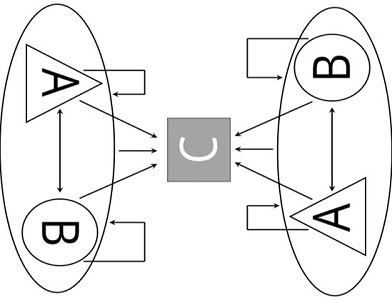Prof. Dr. Alexander Lasch and Svenja Lammers from the Chair of German Linguistics and Language History at the TU Dresden are accompanying the joint project with linguistic research. By doing this, the internal and external communication processes of the project are examined and optimized. In the end, there should be a framework which ensures the comprehensibility and acceptance of the results, with recommendations both for the internal documentation between the partners, as well as for the communication of scientific achievements to the public.
The public discourse shows that developments in AI research are followed by society with great interest, but also with suspicion and, in some cases, fears. With the help of linguistic methods, the knowledge structures on which the linguistic utterances are based are being exposed. In a second step, alternative language images and metaphors that are geared towards comprehensibility and acceptance are developed. Thus, misconceptions and inaccurate, already prevailing images of AI in society can be corrected.
Conceptual coordination is also essential within the joint project, as there can be different conceptions of the not unproblematic term Artificial Intelligence. With more than 20 partners from industry and science, the linguistic research is to reveal which (different) concepts of AI prevail among the different actors who speak and act from their discourse positions. Therefore, a recommendation framework is also created for internal communication, which ensures that misunderstandings are avoided within the project communication.

Alexander Lasch, TU Dresden; Adapted from: Verhagen, Arie. 2015. Grammar and cooperative communication.In: Ewa Dabrowska & Dagmar Divjak (Hg.). Handbook of Cognitive Linguistics (HSK 39). Berlin/Boston, 232-252.